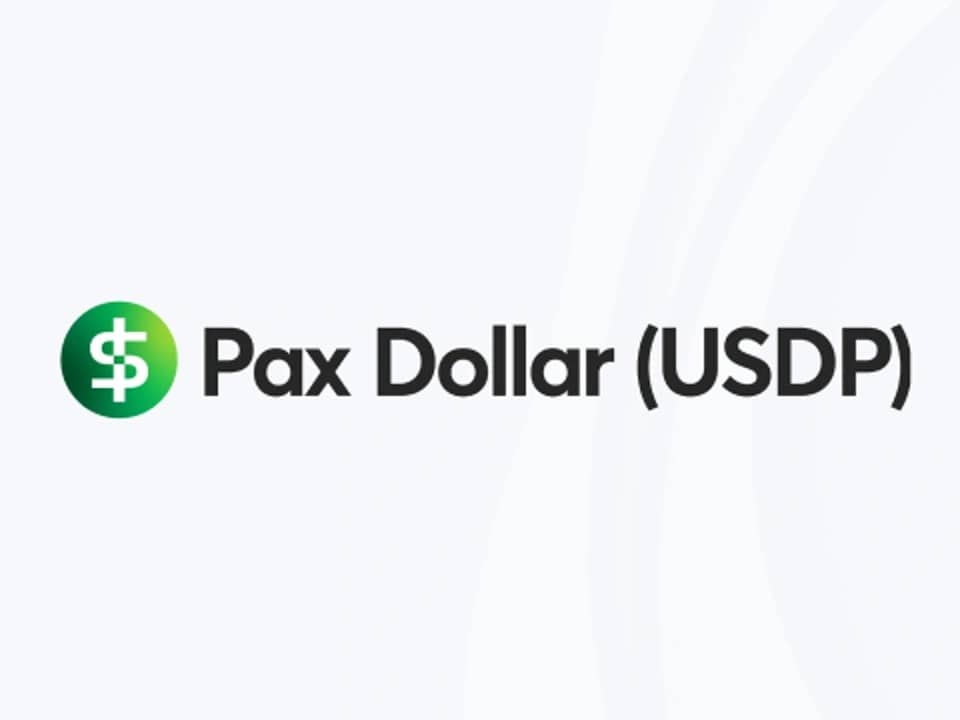위키 구독하기
Share wiki
Bookmark
Pax Dollar (USDP)
0%
Pax Dollar (USDP)
USDP는 미국 달러로 1:1 담보되는 ERC-20 토큰 스테이블 코인입니다. 이는 블록체인 기반 디지털 자산의 생성 및 관리를 전문으로 하는 팍소스에서 발행 및 관리합니다.[1][2]
팍소스
팍소스는 USDP의 배후에 있는 회사입니다. 이전에는 iBit으로 알려졌던 Paxos Trust Company, LLC는 Cedar Hill Capital Partners의 공동 창립자인 Charles Cascarilla와 수석 분석가인 Rich Teo에 의해 2012년에 설립되었습니다. 이 팀에는 전 미국 상원 의원이자 상원 금융위원회 위원인 Bill Bradley와 전 연방예금보험공사(FDIC) 회장인 Sheila Bair와 같은 구성원도 포함되어 있습니다. 뉴욕주 금융 서비스부의 규제 승인에 따라 팍소스는 미국 시장에 진출하여 2015년 5월에 USDP라는 스테이블 코인을 도입했습니다.[3]
"팍소스"라는 이름은 그리스 팍소스 섬에서 널리 사용되는 입법 합의 시스템을 기반으로 선택되었습니다. 고대 기원에도 불구하고 이 시스템은 팍소스 창립자들에게 영감을 주었으며, 이들은 계산적 일관성 개념을 활용하여 팍스 스테이블 코인 토큰을 개발했으며, 이는 나중에 팍스 달러 또는 USDP로 알려지게 되었습니다.[3]
팍소스 NYFDS 조사 및 SEC 소송
2023년 2월, 뉴욕주 금융 서비스부(NYDFS)가 팍소스를 조사하고 있다고 발표되었습니다. NYDFS 대변인은 특정 진행 중인 조사에 대한 언급을 자제하면서 부서의 주요 목표는 암호화폐 시장 투자와 관련된 위험으로부터 소비자를 보호하는 것이라고 분명히 밝혔습니다.[7]
“부서는 우리가 겪고 있는 암호화폐 시장 변동성으로 인한 소비자와 기관 자체에 대한 취약점과 위험을 이해하기 위해 규제 대상 기관과 지속적으로 연락하고 있습니다.”
같은 달에 미국 증권거래위원회가 팍소스에 Wells Notice를 발행했다는 보고가 있었습니다. 규제 기관은 회사에 계획된 집행 조치에 대해 알렸습니다. 해당 통지는 바이낸스 USD가 등록되지 않은 증권이라고 주장한 것으로 알려졌습니다.[8]
바이낸스 대변인은 BUSD가 “팍소스에서 발행하고 소유한 제품”이며 바이낸스는 BUSD와 함께 사용하기 위해 해당 회사에 브랜드 라이선스를 부여했다고 말했습니다. 그들은 팍소스가 뉴욕주 금융 서비스부의 규제를 받고 있으며 BUSD는 “1대 1로 뒷받침되는 스테이블 코인”이라고 덧붙였습니다.[8]
바이낸스 대표는 “스테이블 코인은 변동성이 큰 시장에서 피난처를 찾는 투자자에게 중요한 안전망이며, 접근을 제한하면 전 세계 수백만 명의 사람들에게 직접적인 해를 끼칠 것입니다.”라고 말했습니다. “우리는 상황을 계속 모니터링할 것입니다. 전 세계 사용자는 다양한 스테이블 코인을 사용할 수 있습니다.”[8]
뉴욕 주 규제 당국에 의해 바이낸스 USD(BUSD) 스테이블 코인 발행을 중단하도록 강요받은 후 BUSD의 시가 총액은 160억 달러에서 50억 달러로 감소했습니다.[9]
개요
USDP 코인은 완전한 규제를 받으며 전적으로 현금 보유고로 뒷받침됩니다. USD로 표시된 모든 잔액은 미국에 있는 보험 예금 기관의 계좌에 안전하게 보관됩니다. 현금 보유고는 최대 만기가 3개월인 미국 국채와 같은 현금 등가물과 익일 환매 계약으로 구성됩니다. 이러한 상품은 단기적 특성과 높은 유동성을 특징으로 하며 필요할 때 USD로 전환하는 데 용이합니다.[4]
유통 중인 USDP 토큰의 수는 Paxos Trust Company, LLC에서만 조정할 수 있습니다. 팍소스는 해당 USD 예금으로 뒷받침할 수 있는 만큼 많은 토큰을 생성할 권한이 있습니다.[4]
사용자가 팍소스 계정에 최소 100 USD를 입금하면 팍소스 스마트 계약은 수수료 없이 동일한 양의 USDP 토큰을 생성합니다. 새로 발행된 USDP 토큰은 사용자의 계정으로 전송됩니다. USDP를 USD로 다시 변환하는 과정도 유사하지만 토큰은 완료 즉시 소각(유통에서 제거)됩니다. 전환 및 상환은 무료이므로 보유자는 언제든지 USDP를 미국 달러로 1:1 비율로 교환할 수 있습니다. 상환 즉시 토큰을 소각하면 유통 중인 토큰의 나머지 수가 USD 보유고와 일치하므로 가격 안정성이 보장됩니다.[4]
USDP x MakerDAO
2023년 1월, 팍소스는 DAI 스테이블 코인의 배후에 있는 조직인 MakerDAO에 팍스 USD(USDP) 스테이블 코인을 최대 15억 달러까지 보유하는 데 대해 일관된 수수료를 지불하겠다는 제안을 제시했습니다. 이 제안은 Maker의 거버넌스 포럼에서 공유되었으며, Maker의 페그 안정성 모듈 보유 시스템 내에서 USDP의 부채 한도를 4억 5천만 달러에서 15억 달러로 늘릴 것을 제안했습니다. 팍소스는 당시 연간 4.3%의 비율로 유효 연방 기금 금리(EFFR)의 45%와 연결된 일일 "마케팅 수수료"를 지불하겠다고 제안했습니다. 그러나 이 수수료는 특정 날짜에 부채 한도가 15억 달러에 도달하거나 초과하는 경우에만 적용됩니다. 또한 팍소스는 2024년까지 USDP의 최대 임계값을 20억 달러로 늘릴 것을 제안했습니다. 팍소스의 추정에 따르면 이 계약이 완전히 구현되면 Maker에 연간 약 2,900만 달러의 추가 수입이 발생할 것입니다. MakerDAO 커뮤니티는 토론에 참여하여 결과를 결정하기 위해 제안에 투표했습니다.[5][6]
잘못된 내용이 있나요?
